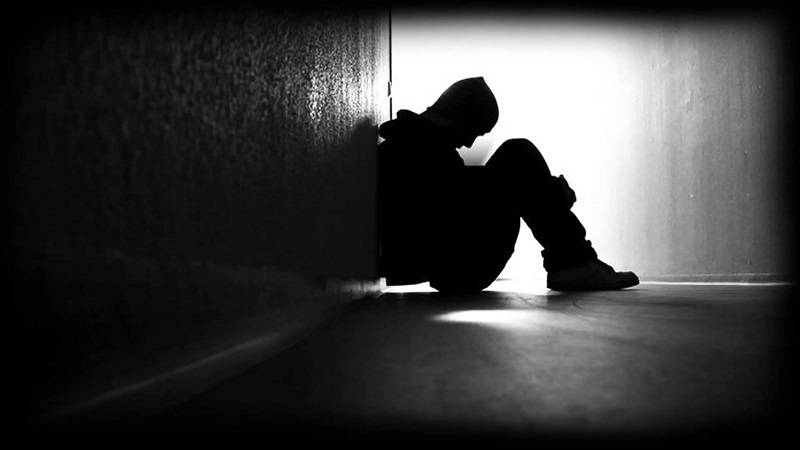What is an emotional block, symptoms and how to overcome it?

We all know the importance of emotions in our life. They are adaptive at all levels regardless of how our life is being obligatory for our survival. An emotional block is an anomalous situation where our thoughts and emotions are relegated to the background. We act normally despite noticing that something inside of us is not going well.
Although the name of the event alludes only to emotions, we must be aware of the influence they have on the rest of our physical and mental stage. Emotions can affect both behaviors and thought, modifying them although we do not realize it. That is why if we suffer a drastic eventuality we usually behave in an incomprehensible way, altering our thinking according to the emotions we felt at the time.
It is important not to confuse it with the more than habitual reactions moderately emotionally before certain news. In the real emotional block, we refuse to face the situation. To understand the difference it is simple that we put ourselves in one of the most usual cases: the death of a family member. That apparently maintain the integrity and continue with our lives does not mean there is a block. When the situation surprises us and we cannot even think about it, it is when we have to ask ourselves if something is happening to us.
We already know how emotional block works but what we have not touched yet is the way it evolves. An emotional blockage is always a temporary matter; it cannot be maintained forever even if we strive for it. By preventing us from feeling worse because of what has happened to us, we learn that theoretically, it is the best way to cope with problems. We accumulate the emotions that we feel while remaining latent in our interior.
Use the emotional block as a defense against problems
Emotional blocks are part of these paradoxical situations that are negative but that occur because they fulfill an apparently positive function in our life. An emotional blockage can prevent us from thinking reasonably about what happened that causes us suffering. As with extreme concerns, we lose a part of ourselves to gain a seemingly beneficial change by giving us immediate reinforcement.
Let’s go back to our duel commented above. We have lost that important family member in our life, being natural that we suffer their loss and fall into apathetic behavior during a certain period of time. When that loss is so severe as to touch the fundamental pillars of our lives it may be more ‘useful’ not to suffer for fear of falling into depression. We accept the lament and its loss but we do not really assimilate it, we will even make an effort to smile, denying the importance of what happened with such habitual phrases as it is something normal in life.
Let’s face an emotional block positively
Is this kind of behavior healthy? Not at all, an emotional block must always be treated. We should think like… it is a temporary difficult stage and that will pass to us anyway. If we do that it will be the best way for us to suffer a serious emotional blow in a while and to repeat the blockage in future situations. The most difficult thing is the sensitivity to the block will increase, going from suffering it to serious situations such as the loss of close people to others objectively less important as a work problem that prevents us from leaving the weekend. In emotional blocks, we cancel our negative emotions without understanding their function in our lives.
Strive to convey what we feel
It happened both to us and to others. To ignore talking about what happened… is a natural consequence of the emotional blockage, we should think that it is not important and that when we put it into a coalition, the only thing we will do is suffer unnecessarily. We need that suffering, we have to be able to express everything we carry inside without fear of a negative social and personal evaluation. Accepting ourselves as suffering people who can cry without shame is a necessary step to avoid future blockages.
Share your thoughts and emotions openly
Learning to express ourselves in an open manner with the people around us is essential to overcome the emotional block. Although we believe that it will not be of any use, people really listen to others when they identify with what they have experienced. We have all had really hard moments in life and although we believe that our situation is unique, misfortune and suffering is something ‘normal’ in the human being.
As expected, these emotions end up looking for a valve to get out of our mind, trapping us suddenly without being able to stop it. In personal behavior, it would result in sudden crying, overwhelming feeling of personal worthlessness and a sense of absolute inability to overcome problems. Everything that we have kept inside comes out suddenly like a cascade of pressure, without knowing how to act when we do not have experience of it. The comfort zone keeps hidden cracks that we cannot see.
That is why emotional blocks are not adaptive in society today. When we lived exclusively with satisfying our basic needs, we avoided interrupting the survival processes. Today, an emotional blockage would prevent us from properly developing the personal relationships that arise, hurting us in our personal concept despite being able to stay alive without any danger.
Keep us active to fight emotional block
One of the most common consequences of the emotional block is the inaction in acting. Getting to be active in all personal fields is mandatory even if we do not feel like doing it. If we like sports we will do it and if they propose a plan to distract us we will force ourselves to go. In situations of leisure is when we will achieve the breaking of the blockage, normalizing our situation in a scenario where we will be socially rewarded for opening up to others.
Did you know…
Smile forcefully lifts the mood. Maybe little, but it works and the muscles involved in the smiling process are directly related to emotions. It does not mean that we smile to overcome the emotional block but it is simply that we show ourselves positively in the long term even though we believe that we are deceiving ourselves.

